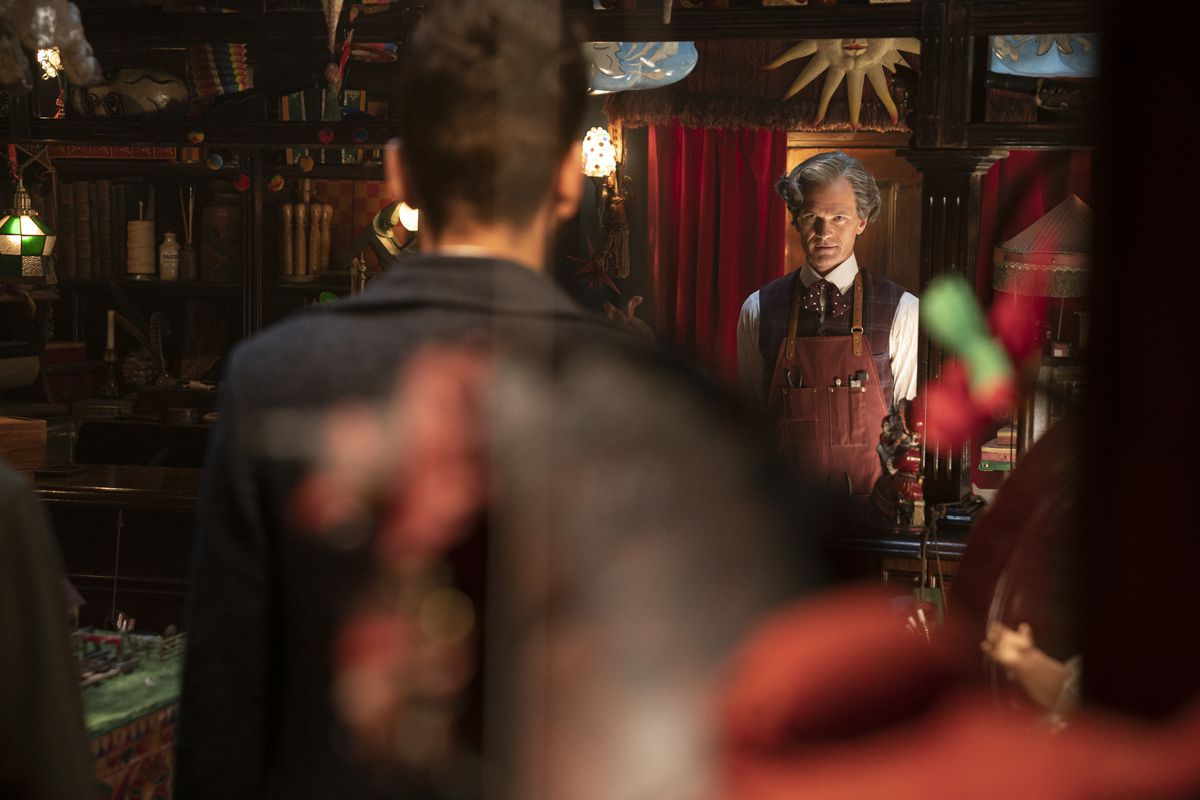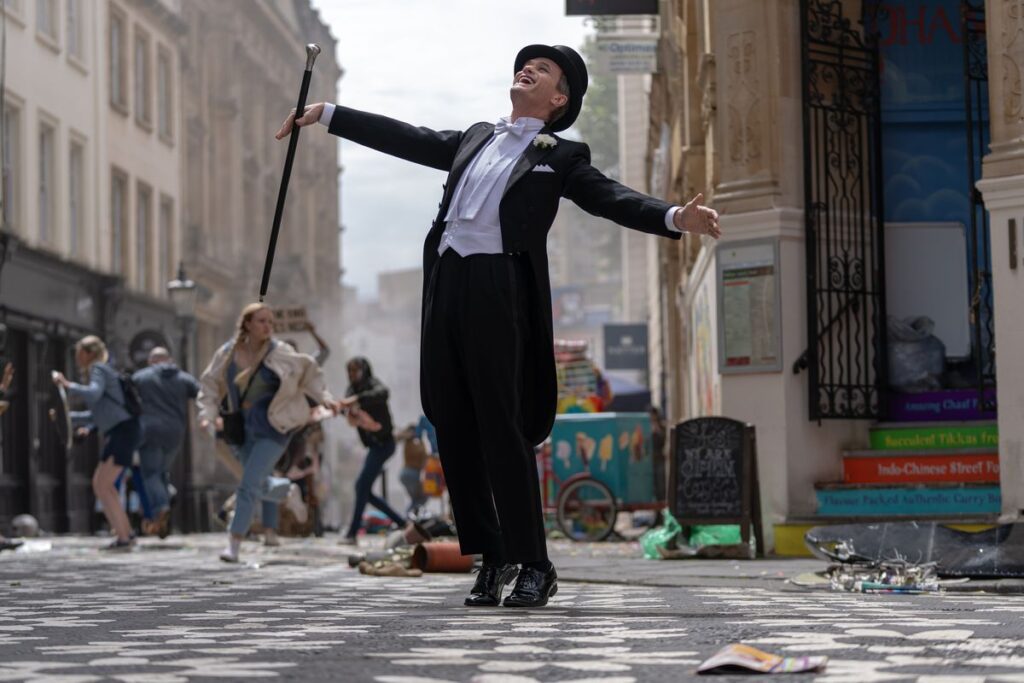It’s Doctor Who tradition that one Doctor’s final episode is the next Doctor’s first. This handoff is one of the coolest things about the show. You never really know what you’re going to get, and everything feels new again. Last weekend, the guard changed once again, in another first for the series following Jodie Whittaker’s tenure as the first woman in the role. Unfortunately, the momentous occasion was marred by what seems like an incredibly boneheaded decision in how the transition was made .
The Fifteenth Doctor, however, is always going to have an asterisk by his name. A little footnote, denoting that his introduction — as actor Ncuti Gatwa takes his historic place as the first Black man to assume the role in Doctor Who’s 60-year history — is different from the rest. It makes the whole affair feel like an alarming step back right before what many still hope might be a great leap forward for the long-running series.
[Ed. note: Spoilers for the ending of “The Giggle” follow.]
As an episode, “The Giggle,” the last of Doctor Who’s three 60th-anniversary specials, is a hell of a ride, if a bit dense. The premise involves a subliminal message hidden in every screen, everywhere, driving the world mad, a heavy-handed metaphor that would drag the whole episode down if the story dwelled on it much. Thankfully, it doesn’t — writer Russell T. Davies mostly uses this plot for spectacle’s sake, to give the episode an apocalyptic scale. He puts much more energy into the episode’s villain, the Toymaker.
A deep pull from Doctor Who history, the Toymaker first appeared during William Hartnell’s (the very first Doctor!) tenure on the run. He’s not shown up on screen since, but still resurfaced in the odd Who novel or radio play through the years. In casting Neil Patrick Harris to resurrect the role, Davies finally gives the three specials a sense of history that this trilogy of specials has been lacking, one that stretches back to before the modern era of Doctor Who Davies kicked off in 2005.
Image: Disney Plus
The Toymaker also thrusts us into the new era of Doctor Who. A creature from beyond the universe who sees all of existence through an amoral lens of games and play, the Doctor’s plan for defeating him involves challenging him to a game — only, in the sort of logic loopholes Doctor Who is so fond of deploying, the Toymaker demands to play the next Doctor — and shoots a beam right through the Doctor’s chest.
This is where “The Giggle” falls apart. Instead of regenerating into Ncuti Gatwa’s Fifteenth Doctor, something weird called “bigeneration” happens, and the Doctor splits in two: David Tennant’s Tenth Doctor and Gatwa’s Fifteenth. It’s not a temporary thing, either — as the special’s denouement plays out, it’s made very clear that Ten will remain alive and well, albeit settling down into the role of Fun Alien Uncle to Donna Noble’s family off screen, while Fifteen goes off to do Doctor Who things. They each even get their own TARDIS.
The whole thing smacks of cowardice. In making the wildly inconsistent decision to make the first Black Doctor a weird anomaly that keeps the previous white one in play, Gatwa’s Fifteen is now categorically not the Doctor, undercut by the fact that the other guy is still out there, even if he never actually shows up.

Image: Disney Plus
There are charitable ways to read why this happened. Davies’ Doctor Who work is best characterized as extremely sentimental, and his plots will frequently toss out logical sense if the emotion of a scene makes sense to him. As a sentimental writer, it’s very possible that Davies could not bear to kill his most-loved Doctor a second time, or that the symbolism of Tennant’s Doctor wishing Gatwa’s good luck and sending him off struck him as more emotionally befitting such a historic handoff. Looking at it this way, however, strains credulity, and there’s little reason anyone should be so generous.
Doctor Who, under the tone Davies himself set in 2005, has established itself as embracing a sort of matter-of-fact progressivism that channeled the optimism of science fiction to show how humanity could, in fact, better itself over time. To that end, the series has often — albeit clumsily — worked to be inclusive and compassionate in fits and starts, matter-of-factly introducing queer characters (including Donna’s trans daughter Rose in the 60th anniversary specials) and endeavoring to make the Doctor’s world a little less lily-white. We could be better, and the Doctor was there to cheer us on.
Which makes this sort of gaffe all the more frustrating, and almost retrograde. It’s the kind of mistake you’d think prominent creators were done making. Granted, the ending of this story is not written yet. We’re still in between seasons, with a Christmas special episode left to give Gatwa’s Doctor his first proper adventure before he kicks off his run in earnest in 2024. It’s possible that Davies plans to address the way “The Giggle” reads as making the first Black Doctor seem like a carve-out that allows regressive holdouts to stick to “their” (white) Doctor. TV is a serial medium, and the push and pull between audience and artists is part of the game.
Gatwa, for his part, is incredible. Even without pants — which he never manages to put on before the credits roll — the Fifteenth Doctor shines in the last few moments of “The Giggle,” with a grin that can light up the sky and an eagerness to see everything and go everywhere. It’s a testament to his talent and charm that he makes it feel like waiting to see how this all plays out will be worth it.

